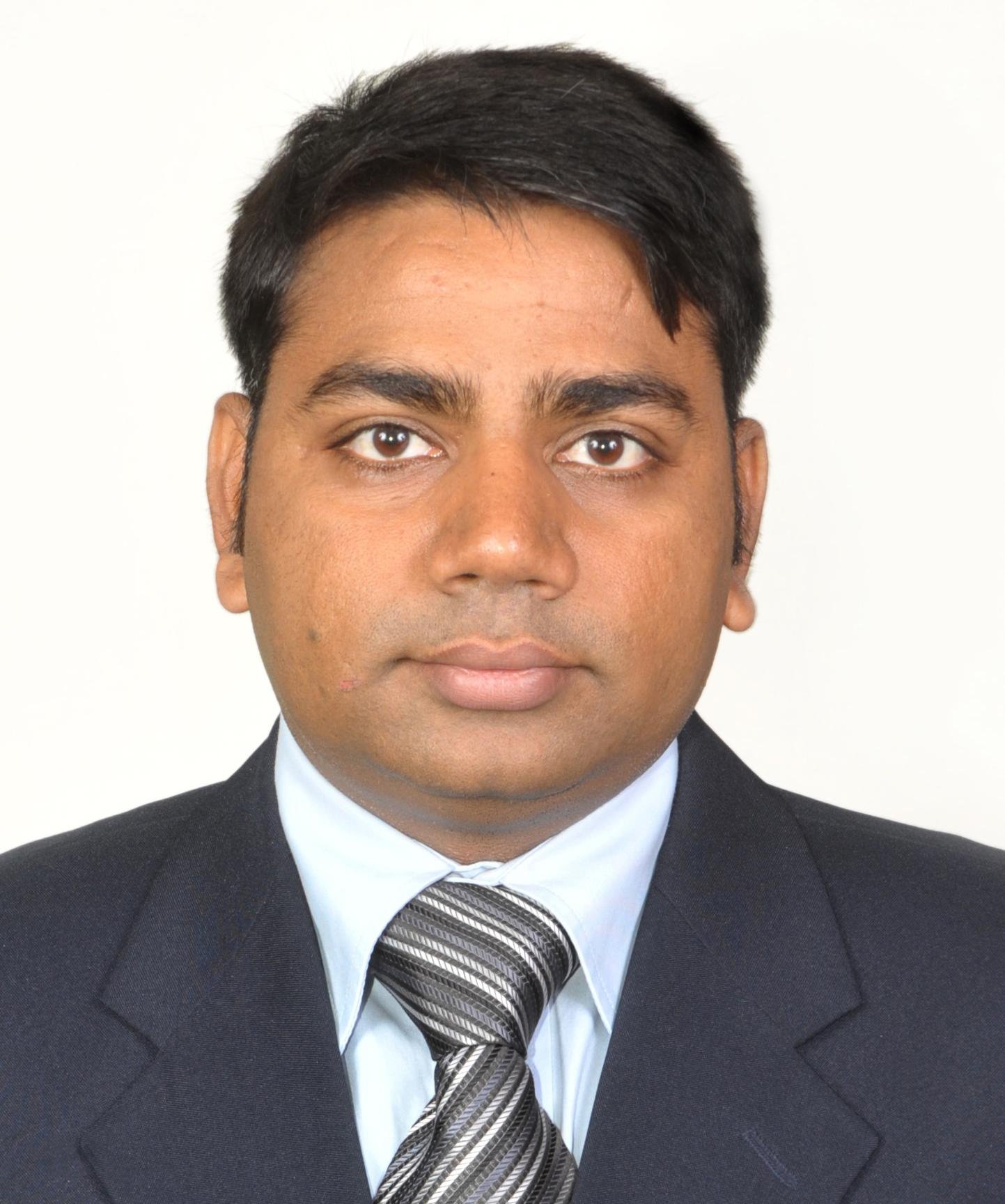“Young researcher need to focus more on the agriculture�
October 14, 2015 | Wednesday | Interviews | By Rahul Koul Koul
“Young researcher need to focus more on the agriculture�
Please tell us about your feelings on being awarded by Thomson Reuters?
I really feel humbled and honoured to receive Research Excellence Citation Award by Thomson Reuters. I would like to dedicate this award to my PhD students, Postdocs, colleagues and collaborators from ICRISAT as well as all other organizations with whom I got an opportunity to work with on different exciting projects. I am also grateful to my teachers, mentors, friends and well-wishers. I express my sincere gratitude to my family especially my children and wife for their unconditional support throughout.
According to you what is more important: publication or product development oriented research?
In my opinion, both publications and product oriented research are important and I don't think that these two things are exclusive to each other. Product oriented research is a direct solution to a challenge, for example bringing superior, high yielding, resistant varieties to markets and fields will help farming and consumer community directly. At the same time, publications are the best knowledge sharing tools to advance science and technology and to train the next generation of scientists to take up new and ambitious challenges. In order to bring an easy access to all readers we believe and promote open access repositories of the research.
What is your advice to the young researchers of India who sometimes feel left out due to glamour and comfort of the jobs?
For all citizens of a nation, it is an obligation to contribute towards the growth of the country in different and any possible way. In my opinion, different fields, be it arts, engineering, finance, medicine, etc. are of equal importance. But for a country like India where agriculture remains the main mean of earning livelihood for rural people that consitutes major part of India, there could not be anything more contributing than agriculture. Apart from it today almost a billion people worldwide live in a state of hunger. Moreover, there would be a steep elevation in these figures by 2050. Simultaneously climatic changes are resulting in huge crop losses every year and making the scenario worsen. Research in field of agriculture has become "A call of the hour", as basic to everything comes down to "Food". Young researcher need to focus more on the agriculture as the field is with vast ocean of opportunities and rewarding too, in coming future.
What are the research initiatives taken by ICRISAT in decoding genomes of various crops of importance? How will it benefit the nation?
Before I joined ICRISAT in 2005, there were very limited genomics resources available for the ICRISAT mandate crops like chickpea, pigeonpea and groundnut. These crops, though are very important for ensuring food and nutritional security, have not been given much importance at international level and used to be called "orphan crops". Application of molecular breeding to enhance crop productivity in these crops was a daunting task. In the last 5-6 years, ICRISAT with its noble mission to benefit small holder farmers in the terms of economic opportunity and consumers in the form of improved nutrition, led demand-driven innovations in genomics science.
We floated various genome sequencing consortia such as International Initiative on Pigeonpea Genomics where using whole genome shotgun sequencing approach, we completed the sequencing of pigeonpea, the first non-industrial legume crop for which a genome sequence became available in 2012. We also led International Chickpea Genome Sequence Consortium and completed the genome sequencing of chickpea variety in 2013.
We have become the first institute of the CGIAR and the first institute based in India who published genome sequences as lead in the topmost science journals like Nature Biotechnology. Recently, we as a leader for the International Pearl Millet Genome Sequencing Consortium also completed genome sequencing of pearl millet. ICRISAT has also collaborated with the partners in International Peanut Genome Initiative for decoding draft genome for both the diploid progenitors while co-led with colleagues from China another initiative Diploid Progenitor Peanut A-genome Sequencing Consortium (DPPAGSC) for sequencing the A-genome progenitor.
By using molecular breeding methodologies, ICRISAT has been successful in developing superior lines with enhanced drought tolerance as well as with enhanced resistance to Fusarium wilt and Ascochyta blight diseases in in chickpea. In the case of groundnut improved lines have been developed with enhanced resistance to leaf rust and with enhanced high oil quality. Molecular breeding lines are expected to be released as improved varieties in due course. This will provide a better produce and more income to farmers of India. It is important to note here that crops like chickpea, groundnut and pigeonpea are grown by small-holder farmers and therefore enhanced crop productivity of these crops will help and mean a lot to the farmers. Secondly, India, despite being the major producer for the pulses and oilseed crops, still imports these crops in large quantity. Enhanced crop production will contribute to make India self- reliant in these crops.
What is the current focus of your research group?
In order to capture the genetic variation present in germplasm collections and to identify superior alleles for the target traits currently, we are engaged at present in whole genome resequencing projects. One of them is 'The 3000 Chickpea Genome Sequencing Initiative' in which we are sequencing and also phenotyping 3000 accessions of chickpea from the genebank. We are accelerating molecular breeding activities by targeting drought tolerance in chickpea, disease resistance and oil quality in groundnut. In order to harvest maximum from the genomic blue prints developed, we are also working on transcriptomics, gene expression atlas and proteome maps of our crops. Results obtained through these commutative efforts will not only enhance our understanding towards the gene function, characterization, gene discovery, protein interactions but will also allow selection of better alleles for crop improvement.









